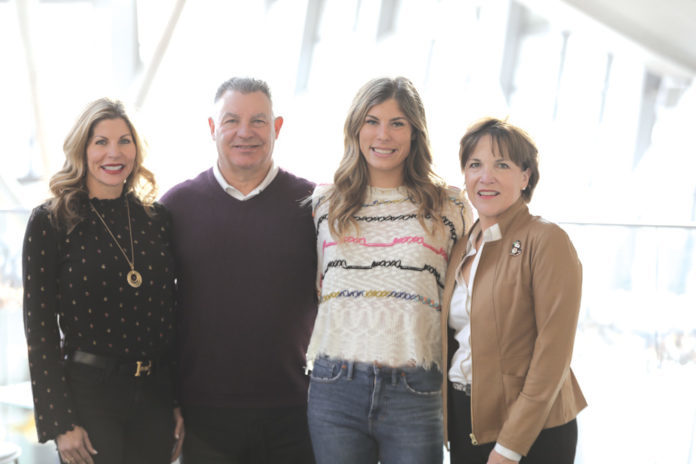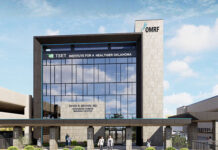
David and Cory LeNorman have a unique perspective on the critical nutritional needs of newborns and a heightened awareness of the demand for extraordinary care. Their daughter, Quincy, was born 24 weeks into pregnancy, much earlier than the 38- to 40-week period considered optimal by neonatology experts. The family’s personal experience was the driving force behind their dream, and motivated the $1.5 million gift made to establish the Quincy LeNorman Nutrition Center at The Children’s Hospital at OU Medicine. The gift will significantly advance the care provided at the nationally ranked hospital, adding state-of-the art technologies that further elevate best practices in nutritional science.
“We’re both grateful and delighted to accept this generous gift presented by the LeNorman family,” said Jon Hayes, president, The Children’s Hospital. “It perfectly joins the long-held, shared vision of hospital and physician leaders with the heartfelt desire of the LeNormans. Thanks to this funding, we’ll realize a mutual goal to build upon and expand nutrition services that are vital to health and healing of the children we care for at The Children’s Hospital.”
Born weighing less than two pounds, Quincy LeNorman, the center’s namesake, spent the first 88 days of her life in the Neonatal Intensive Care Unit at Children’s. Now 17, she thrives as a student who plays high-school soccer, with no evidence of an early struggle for life. Quincy’s mother, Cory LeNorman, said her pregnancy was normal in every respect, with no hint of trouble until two days before delivery.
“The reason Quincy is here today is because of the great support we received – skilled and dedicated nurses, doctors and other personnel, and a facility that was equipped to provide the best possible care.”
Nearly three months after her birth, Quincy was discharged from the NICU. But the LeNormans never forgot the labor of love that gave Quincy a chance at life. In years that followed, David and Cory began to consider ways to give back that would match their keen interest and address identified needs at The Children’s Hospital.
At the same time, NICU personnel and hospital leaders envisioned better ways to meet their patients’ diverse nutritional demands. Laying the groundwork to bring the vision to reality, leaders toured several NICU centers in the Dallas/Ft. Worth area, observing best practices in neonatal nutrition handling, touring thoughtfully planned facilities, and identifying a model to emulate at Children’s.
Trent Tipple, M.D., neonatology specialist and chief of Neonatal-Perinatal Medicine, The Children’s Hospital, said, “The Children’s Hospital is where the state’s tiniest and most vulnerable patients come for the level of care their complex conditions require. The future center represents another major step forward in neonatal nutrition. Thanks to the LeNorman family, we will have greater capacity to deliver life-saving technologies and redefine excellence in neonatal care.” One of the significant components that will distinguish the new nutrition center will be its use of sophisticated software that will track and analyze detailed metrics information. A human milk analyzer will determine how and to what extent milk must be fortified to meet specific nutritional needs. It will also identify babies whose growth is not progressing adequately.
Jamie Kilpatrick, M.S., R.N., CENP, director of the Neonatal Intensive Care Unit at Children’s, said, “Currently, formula and human milk preparation for neonates is done in a small human milk lab, which we have already outgrown. Feeding preparation for other hospitalized children occurs in a separate area. All services are performed by excellent and expert hospital team members who follow best practices to meet high-reliability nutrition demands. However, a more seamless operation – more centralized and expanded for greater efficiency – will support our capacity to supply the best nutritional services possible on a broader scale.” The proposed nutrition center will benefit not only babies receiving care as NICU patients, but other infants and pediatric patients who face a range of complex feeding needs. These special needs may be related to specific treatment, care or rehab related to surgery, or due to other unique nutritional deficits or sensitivities.














